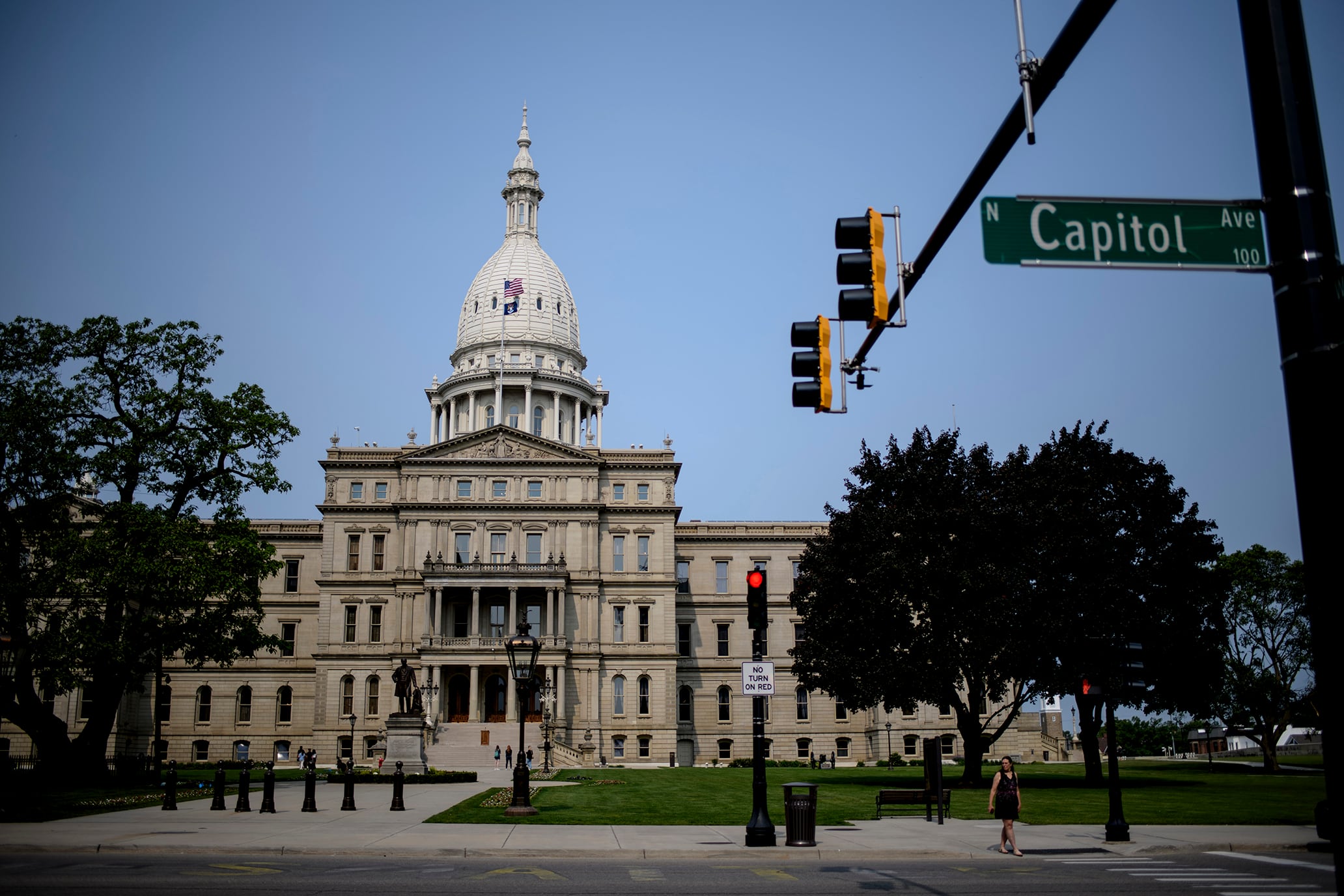Sign up for Chalkbeat Detroit’s free newsletter to keep up with the city’s public school system and Michigan education policy.
Michigan House Republicans on Wednesday proposed one of the largest increases to per-pupil funding for public schools in years, but their Democratic colleagues argued that many key costs for school meals and at-risk programs would come out of classroom funding.
It would also come with a 20% foundation allowance penalty if districts were noncomplaint with proposed boilerplate language prohibiting race, gender, and DEI instruction or initiatives. That includes any curriculum that includes supposed race or gender “stereotyping,” allowing transgender girls to participate in girls’ sports or providing multi-stall unisex bathrooms.
The school aid budget reported Wednesday by the House Appropriations Committee would allocate $21.9 billion with $69.9 million coming from the state’s general fund, a 5.5% increase from last year’s approved budget.
Per-pupil funding in the House version of the school aid budget would be increased by $558 million gross funding to provide a $417 per-pupil increase, moving it to $10,025 per student.
State Rep. Tim Kelly, a Republican from Saginaw Township and chair of the House Appropriations Subcommittee on School Aid and Department of Education, said his subcommittee’s budget aimed to redirect funds away from the “expansion and explosion of categoricals” and to provide funding that Lansing Republicans felt was a “more than adequate amount of money to provide a quality education to every Michigan student.”
“We are hoping to have the performance that our citizens demand,” Kelly said.
State Rep. Ann Bollin, a Republican from Brighton and chair of the House Appropriations Committee, said the House school aid budget proposed funding that was higher than the dollars proposed by Gov. Gretchen Whitmer in her executive recommendations released earlier this year and the Senate’s version of the school aid bills passed months ago.
The committee’s Democratic members, however, said they had several concerns.
State Rep. Natalie Price, a Democrat from Berkley, noted that the budget completely eliminates line item funding for the state’s universal school meal program. Price said that when kids are hungry, they can’t learn as well and do worse in school.
“I hear you saying that we want to improve education scores and we know this program has helped,” Price said.
Kelly turned and asked Price if she had proof on whether school meals actually helped student performance, noting his belief that student performance was better before the universal school meal program was introduced.
Price countered by noting that Kelly wanted to give districts the option on how they fund that program, but said that money will undoubtedly come out of classroom budgets, which she said would lead to lower test scores.
Bollin again noted that the decision on how districts move forward with school meals would go back to them as opposed to Lansing bureaucrats.
“Nobody wants to see anybody go hungry,” Bollin said.
State Rep. Donavan McKinney, a Democrat from Detroit, raised concerns about the cuts to at-risk funding. MKinney said without at-risk funding or after-school programs, some children in impoverished areas with high crime would not even be attending class because their lives would be cut short outside of school walls.
“These programs saved my life as a child,” McKinney said before noting that the House school aid budget represents a major cut and completely zeros out funding for programs to help at-risk students. “There’s not a day that goes by that I don’t hear a gunshot in my community. So what are we doing? And what are the considerations that you are taking to cut these programs?”
Kelly was adamant that the school aid budget doesn’t wrap up at-risk funding, but said House Republicans wanted to “eliminate excuses, to try and provide as much as much money up front as we can to the classroom, the student, for the schools, to deliver what with think is a quality education.”
“We think it’s adequately funded,” Kelly said.
State Rep. Regina Weiss, a Democrat from Oak Park, who does not sit on the appropriations committee but appeared to testify in opposition to the budget bill, said she was alarmed to see a $2.5 billion hit in the House proposal to the school aid fund to fund other purposes — and she said those are currently unknown because the House’s general fund and other government spending budgets haven’t been completed.
She mentioned the House Democrats school budget proposal released Tuesday as one that adjusts for inflation and offers stability.
The Michigan Alliance for Student Opportunity in a news release said the House budget proposal for K-12 schools ignores student needs.
“The House Republicans’ education budget proposal leaves behind the most vulnerable students in our state and underscores the urgent need for Michigan to prioritize true equity in funding for students with the greatest needs,” said Peter Spadafore, executive director of the Alliance. “While we’re encouraged to see the foundation allowance proposal reach $10,025, the highest of the three budgets this cycle, that’s unfortunately where the good news ends.”
Spadafore also questioned if the plan, which holds at-risk funding flat, is a functional cut when inflationary pressures are factored in. More concerning for the Alliance were the targeted eliminations of certain programs designed to address unique student needs.
“The new categorical introduced by the House – which provides about $1,975 per pupil – might seem like a step forward. But it comes at the expense of targeted funding for student supports,” Spadafore said. “Without any increase in the [School Finance Research Collaborative]-recommended weights for students in poverty, English learners, or special education, this proposal fails to recognize the higher costs of educating students with the greatest needs.”
The House budget would also erase the Michigan Public School Employee’s Retirement System, or MPSERS, savings achieved last year, and shift school aid funding for classrooms that comes from lottery proceeds to universities.
“We know that funding alone doesn’t close opportunity gaps, but it is the foundation for smaller class sizes, mental health supports, wraparound services, and other resources that help level the playing field,” Spadafore said. “This proposal misses the mark by ignoring the fundamental reality that it costs more to educate economically disadvantaged students because of what poverty means in real terms. Our students need more than a flat increase; they need a commitment to funding equity.”
Ben Solis is the senior reporter for Michigan Advance. He can be reached at bsolis@michiganadvance.com.







